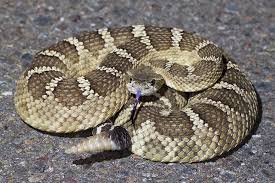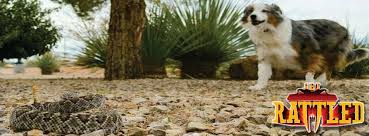 Rattlesnakes can be found in the wetlands, deserts and forests, from sea level to mountain elevations. Locally snakes are active when the weather is warm (spring to autumn), thought further south in warm climates they can be active almost year-round. Rattlesnake bites are considered a serious veterinary emergency and require immediate action. Snake bites result in injury or death to thousands of dogs each year. Treatment for rattlesnake bites can be quite costly, from the anti-venom itself to hospitalization, IV fluids and supportive care. The anti-venom may also cause an adverse reaction to venom and prolonging the time available to seek emergency medical care. This vaccine can reduce the impact of the venom, making treatment shorter and decreasing the likelihood of anti-venom and hospitalization needed. Another way to protect your dog when you are out running, hiking, camping, or hunting, is to avoid rattlesnakes all together. Training in rattlesnake avoidance can help your dog eliminate a situation where a bite can occur, preventing the need for emergency care at all. We host annual rattlesnake avoidance classes using the company Get Rattled base out of Reno, Nevada. Our upcoming 2018 classes will be held this June 2nd and 3rd. Get Rattled uses decades of combined knowledge in different aversion training methods, and offer fact vs. fiction education to pet owners. **Information gathered for this post sourced from literature provided by the Red Rock Rattlesnake Company and Get Rattled.
1 Comment
|
Author:NOAH Staff Archives
April 2022
|

